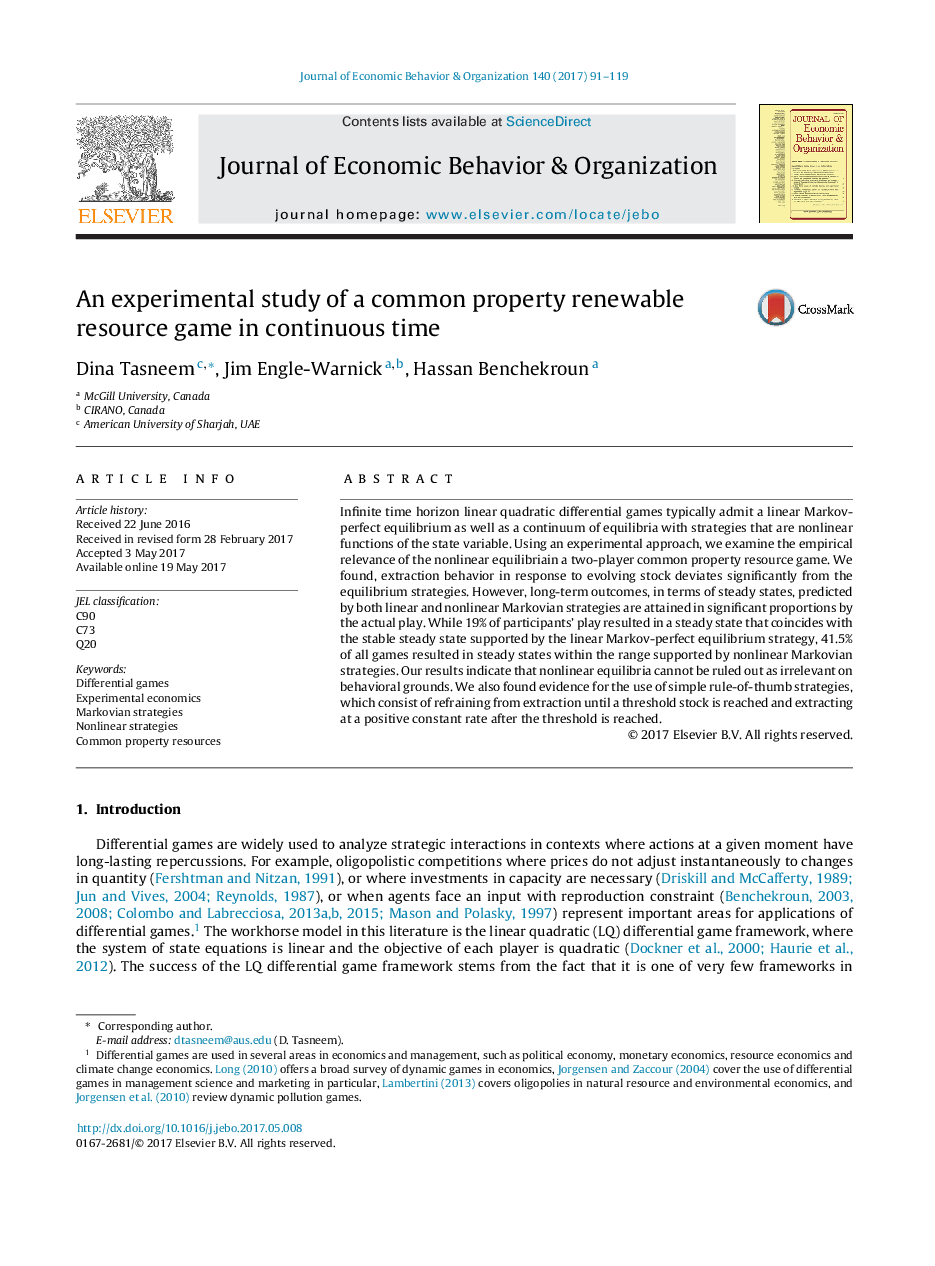| Article ID | Journal | Published Year | Pages | File Type |
|---|---|---|---|---|
| 5034433 | Journal of Economic Behavior & Organization | 2017 | 29 Pages |
Abstract
Infinite time horizon linear quadratic differential games typically admit a linear Markov-perfect equilibrium as well as a continuum of equilibria with strategies that are nonlinear functions of the state variable. Using an experimental approach, we examine the empirical relevance of the nonlinear equilibriain a two-player common property resource game. We found, extraction behavior in response to evolving stock deviates significantly from the equilibrium strategies. However, long-term outcomes, in terms of steady states, predicted by both linear and nonlinear Markovian strategies are attained in significant proportions by the actual play. While 19% of participants' play resulted in a steady state that coincides with the stable steady state supported by the linear Markov-perfect equilibrium strategy, 41.5% of all games resulted in steady states within the range supported by nonlinear Markovian strategies. Our results indicate that nonlinear equilibria cannot be ruled out as irrelevant on behavioral grounds. We also found evidence for the use of simple rule-of-thumb strategies, which consist of refraining from extraction until a threshold stock is reached and extracting at a positive constant rate after the threshold is reached.
Related Topics
Social Sciences and Humanities
Economics, Econometrics and Finance
Economics and Econometrics
Authors
Dina Tasneem, Jim Engle-Warnick, Hassan Benchekroun,
